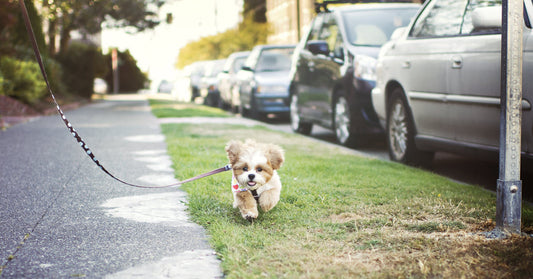Have you ever wondered how your dog knows to come cheer you up when you're crying or feeling down, or why they snuggle with you on the couch every night? What about how they seem to know what you're thinking, and vice versa, just by a look into each other's eyes?
Humans and dogs have been connected for thousands of years, and scientists had yet to begin to crack the code as to why dogs and humans love each other so much, until now. Recent studies involving the genes of Man's Best Friend have developed new ideas as to why dogs act the way they do with their human companions.
It's All About The Genes
Princeton evolutionary biologist Bridgett Van Holdt and her colleagues have spent the past three years studying social behavior in dogs and wolves, focusing on the underlying genetic basis that connects the two.
As described in this National Geographic article, they have found that humans may have bred a behavioral syndrome into our dogs, similar to Williams Syndrome, causing them to be more sociable (and lovable!) than wolves. This is why they enjoy human company the most, and obey our rules and commands...most of the time.
Copycat (Well, Dog)
Over the years of evolution, our furry friends have also developed new behaviors that mimic a human's, which allows them to read us, help us and even copy us. They can read our facial expressions, feel jealousy, take care of us when we are sad, and even watch our favorite TV show with us!
This special behavioral bond has linked humans and our pups for ages, which is why our genes evolve parallel to one another, and explains why we can understand each other using only eye contact. We have a special bond with our dogs, and it goes further back than we had ever imagined!
Heartwarming, isn't it?
The genetics, the behavior and the parallel evolution explain why our bond with these lovable creatures is so strong, and why our bond with wolves is not so much. The puppy love is real, and thanks to this new scientific research and National Geographic, we can cuddle our canines knowing that our love is returned.
Watch this Golden Retriever take cues from his owner's facial expression





